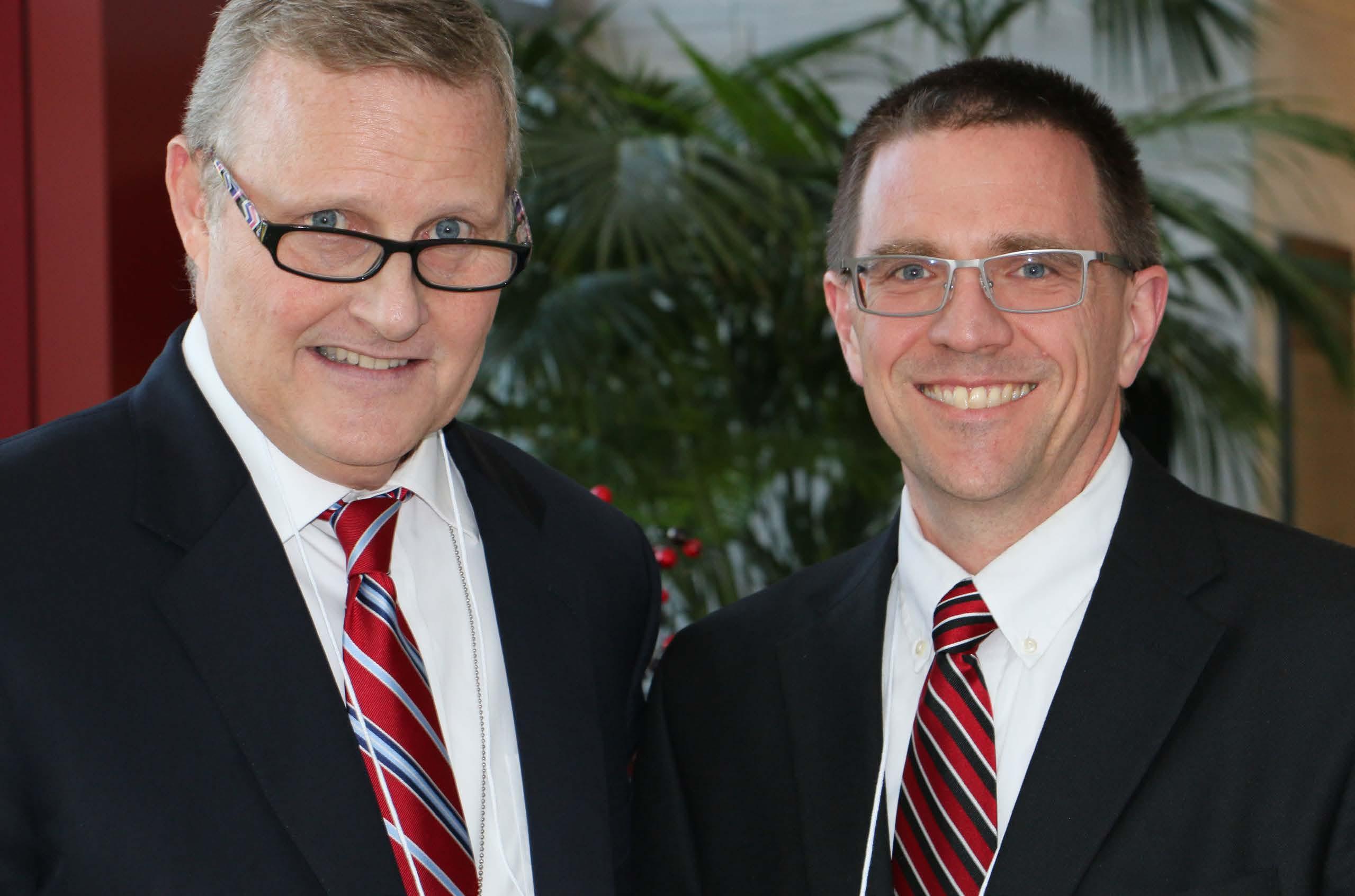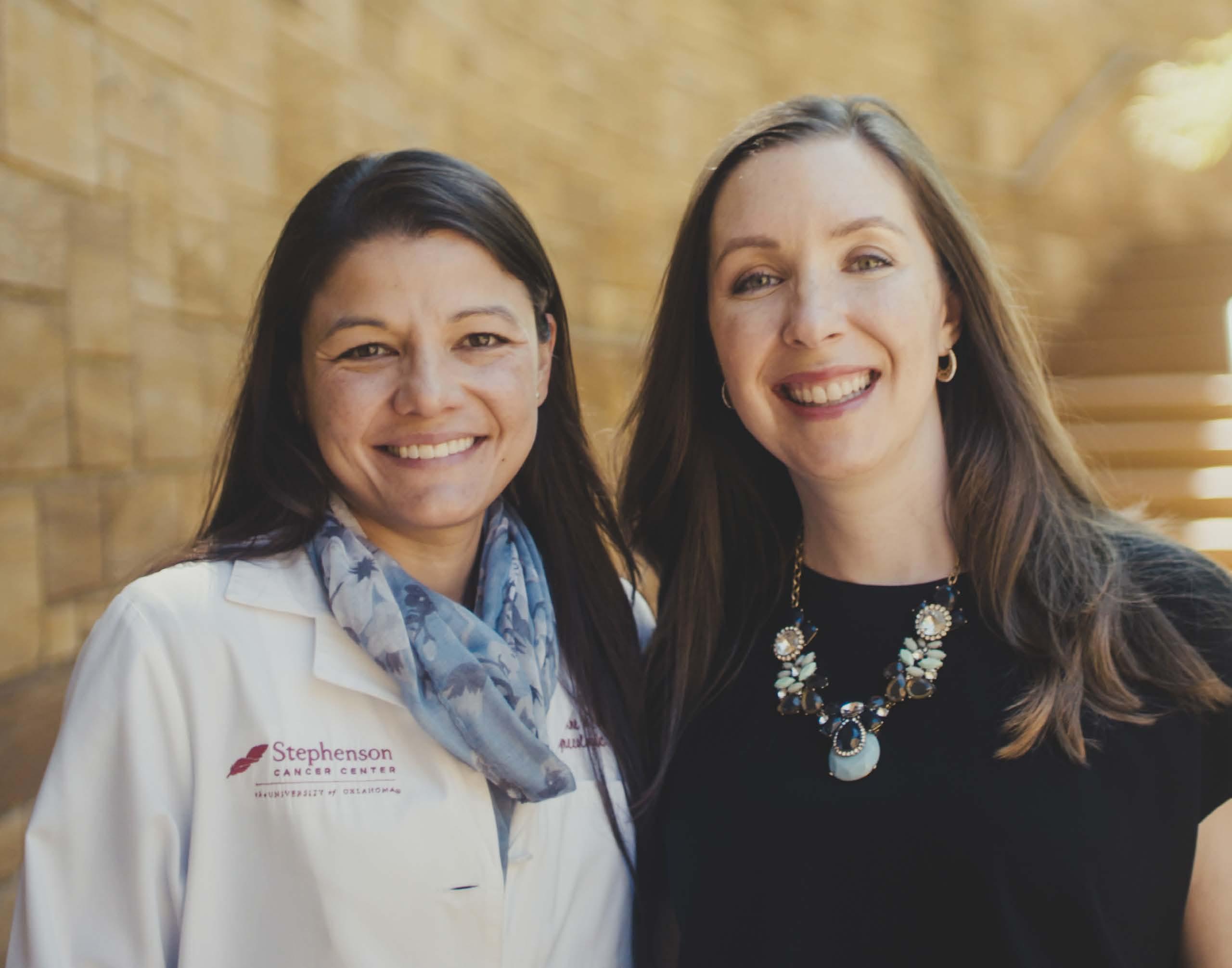RESE ARCH
Mannel, M.D., director of the Cancer Center. He performed surgery, then she received radiation and chemotherapy on a National Cancer Institute clinical trial that was testing a particular combination. For about a year, she was fine, but in March 2017, she learned that her cancer had recurred. Mannel sent her tumor for testing, and the results were not favorable. She had numerous genetic mutations, whereas some cancers only have one or two. She also was found to have microsatellite instability – rather than correcting errors that occur in DNA replication, her cells were creating more mutations. The news kept getting worse. The cancer spread to her brain and to her spine, compressing the spinal cord. She suddenly lost the ability to walk. “I literally could not raise my feet to put one in front of the other,” said Laurence, an Edmond resident. “I got a motorized scooter.” After radiation to her spine and the brain lesion, the cancer shrunk and Laurence was able to move her legs and, with a lot of physical therapy, learned to walk again. “The side effect of losing my hair seemed silly in comparison,” she said. “I was alive and breathing and had tomorrow to look forward to. I was nursed into that feeling by all the loving, wonderful people around me.” Laurence soon learned she was a candidate for a phase 1 clinical trial, which tests drugs for the first time in humans. She was one of the first participants to receive an immunotherapy drug thought to be appropriate for cancer patients with numerous mutations like hers. The drug works by unmasking the cancer cells, which had been hiding, so that the body’s own immune system can recognize them as foreign and attack them. Laurence has now completed 21 cycles of the treatment, nearly two years’ worth, and goes to Stephenson Cancer Center every six weeks for a new infusion. While she is not in remission, her cancer has not progressed, and she has few side effects from the treatment. “It excites me to think that what doctors learn from my study might be somebody else’s future,” Laurence said. “There was no question that I wanted to be on the clinical trial. I’m OK knowing that something I’m living with may yield answers that are a salvation for somebody else.” Mannel said Laurence serves as a great example of why a National Cancer Institute-designated cancer center like Stephenson, with its breadth of research and clinical trials, is crucial to improving life expectancy and quality of life. Laurence is at the center of a team that strives to give her the best treatment options today while creating more possibilities for those who will one day walk in her shoes. “Battling cancer is a team approach,” Mannel said. “It’s about creating a supportive environment and providing opportunities for the patient to fight cancer. Susan is a great example of someone who has battled cancer with dignity and energy, as well as someone who is participating in a clinical trial not only for her own benefit, but for the ways it will help countless women in the future.”
30
Deepa Sathyaseelan, Ph.D.
Stephenson Cancer Researcher Awarded Large Grant To Study Role of Aging, Inflammation in Cancer and Other Diseases As part of normal aging, people build up inflammation in their bodies – not the acute kind that eliminates an infection, but a mild, persistent inflammation that creates a higher risk for age-related diseases like cancer, Type 2 diabetes and Alzheimer’s. A researcher at the Stephenson Cancer Center, Deepa Sathyaseelan, Ph.D., received a $1.6 million grant to further her investigations into the role of inflammation in both aging and age-related diseases like cancer. The grant is from the National Institute on Aging, a component of the National Institutes of Health. Sathyaseelan is focusing her research on necroptosis, a cell signaling pathway that causes inflammation. In previous studies, she discovered that with an increase in age comes an increase in necroptosis. Her hypothesis is that necroptosis leads to increased inflammation with age. With her new grant, she will try to block necroptosis to see whether it will reduce inflammation and whether that will have an effect on aging and age-related diseases. Her research is notable because it has major implications for both aging and cancer. “Aging and cancer are interrelated – you cannot separate them because aging is the biggest risk factor for most cancers,” she said. “Rather than targeting individual diseases, if we can learn how to positively affect or slow down aging, we
[ Fa l l / Wi n t e r 2 019 ]











































